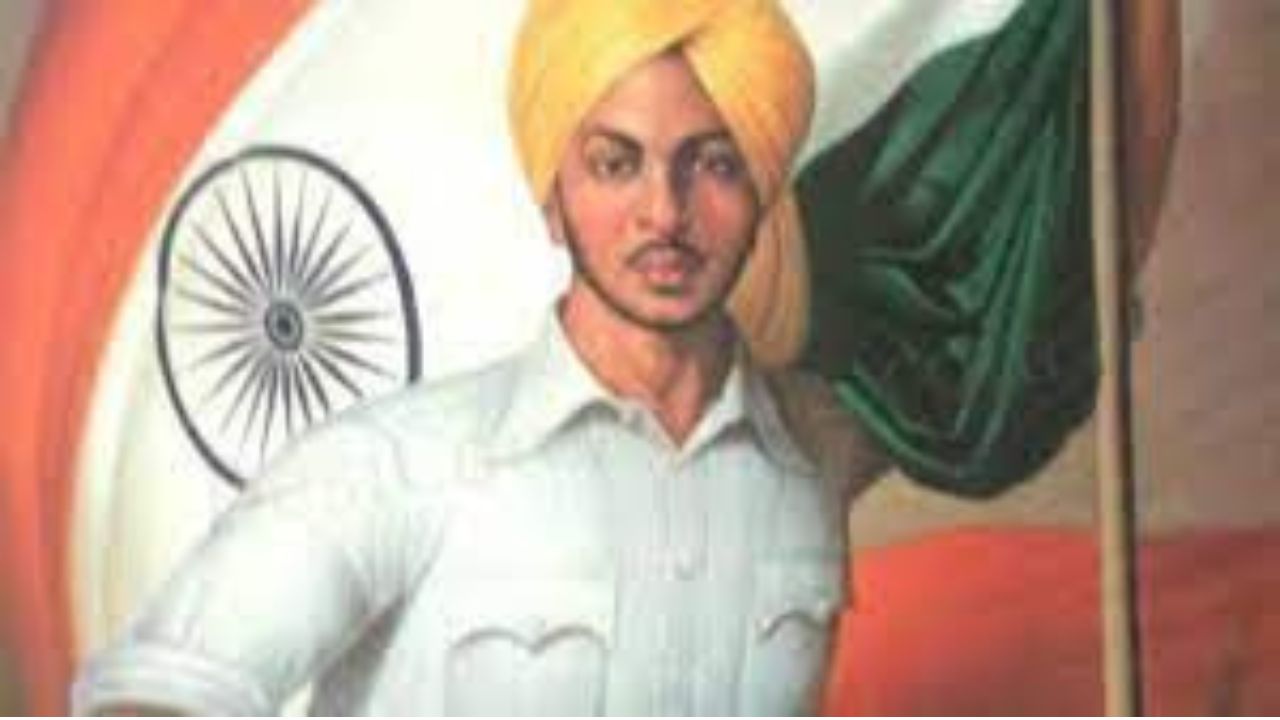Bhagat Singh

Bhagat Singh (1907-1931) was a courageous and iconic revolutionary figure in India’s struggle for independence from British colonial rule. He is remembered for his unwavering commitment to the cause of freedom and his willingness to sacrifice his life for the nation. Here is an overview of his life and contributions:
- Early Life and Education: Bhagat Singh was born on September 28, 1907, in Banga, Punjab, which is now in Pakistan. He came from a Sikh family with a history of involvement in political and social causes. He was a bright student and deeply influenced by the Jallianwala Bagh massacre and other injustices inflicted upon Indians by the British.
- Hindustan Socialist Republican Association (HSRA): Bhagat Singh became associated with the HSRA, a revolutionary organization that believed in armed struggle against British rule. He saw violence as a means to draw attention to the oppressive colonial regime.
- Protest Against Simon Commission: In 1928, Bhagat Singh and his associates protested against the Simon Commission, which had no Indian representation, by showing black flags and shouting slogans. Lala Lajpat Rai was injured in a police baton charge during this protest, leading to his death, which further fueled Bhagat Singh’s determination.
- Assembly Bombing and Arrest: On April 8, 1929, Bhagat Singh and Batukeshwar Dutt threw non-lethal smoke bombs in the Central Legislative Assembly in Delhi to protest against repressive laws. They were arrested and subsequently put on trial.
- Hunger Strike in Jail: While in prison, Bhagat Singh and other freedom fighters went on a hunger strike to protest against the inhumane treatment of political prisoners. He demanded equal rights for Indian and British prisoners.
- Execution: Despite widespread protests and appeals for clemency from various quarters, Bhagat Singh, along with Rajguru and Sukhdev, was sentenced to death by hanging. They were executed on March 23, 1931, in Lahore Central Jail. Their martyrdom left a deep impact on the Indian freedom movement.
- Legacy: Bhagat Singh is remembered as a symbol of courage and sacrifice. His commitment to the cause of freedom and his willingness to give up his life for the nation have made him an enduring hero in Indian history.
- Influence on Modern India: Bhagat Singh’s life and ideals continue to inspire generations of Indians. His slogan, “Inquilab Zindabad!” (Long Live the Revolution!), remains a rallying cry for those advocating for social justice and change.
- Shaheed Diwas: March 23rd is observed as “Shaheed Diwas” (Martyrs’ Day) in honor of Bhagat Singh, Rajguru, and Sukhdev. On this day, events and tributes are organized across India to remember their sacrifice.
Bhagat Singh’s bravery and commitment to the cause of independence have left an indelible mark on the collective consciousness of India. He is celebrated as a national hero who selflessly gave his life for the freedom of his country.
Specific Content Keywords : Freedom Fighter,Indian Nationalist,Martyr,Jallianwala Bagh Massacre,Hindustan Socialist Republican,Association (HSRA),Assembly Bombing,Lahore Conspiracy Case,Execution,Jail Diary,Hunger Strike,Shaheed Diwas (Martyrs’ Day),Bhagat Singh’s Birthday,Inquilab Zindabad,Lala Lajpat Rai,Simon Commission,Revolutionary Ideology,Lala Lajpat Rai’s Death,Central Legislative Assembly,Youth Icon,Legacy and Inspirational Figure.
Related Links

